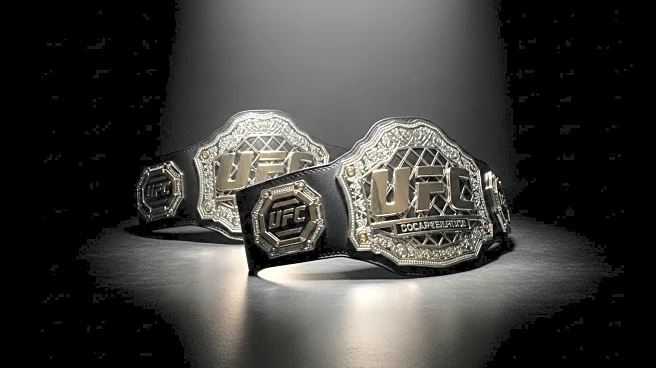What is the story about?
What's Happening?
Charles Oliveira, following his victory over Mateusz Gamrot at UFC Rio, has called out Max Holloway for a fight, aiming to add the BMF championship to his accolades. Holloway, known for not shying away from challenges, responded to Oliveira's callout during a live stream, stating that any potential fight would occur on his terms. Holloway emphasized that he would not fight in Rio, suggesting Las Vegas as a possible venue. This comes after Holloway's previous victory in Brazil against Jose Aldo, which he referenced as a significant achievement. Holloway is currently recovering from injuries sustained in his last fight against Dustin Poirier and is eyeing a return to the octagon by March. Oliveira, open to Holloway's conditions, expressed willingness to fight outside Brazil, even considering Hawaii, although Holloway dismissed the possibility due to logistical challenges.
Why It's Important?
The potential matchup between Max Holloway and Charles Oliveira is significant for the UFC, as it involves two high-profile fighters with substantial fan followings. Holloway's insistence on fighting on his terms highlights the strategic considerations top fighters must weigh, including venue and timing, which can impact their performance and career trajectory. Oliveira's flexibility in accepting Holloway's conditions demonstrates his eagerness to secure high-stakes fights that could elevate his status within the sport. This development could influence future matchmaking decisions and promotional strategies within the UFC, affecting how fights are negotiated and marketed.
What's Next?
If the fight between Holloway and Oliveira materializes, it could be scheduled for March, aligning with Holloway's recovery timeline. The UFC will need to finalize the venue, likely opting for a location that maximizes audience engagement and revenue potential. Stakeholders, including UFC executives and sponsors, will closely monitor negotiations to ensure the fight's success. Fans and analysts will speculate on the fighters' strategies and potential outcomes, adding to the anticipation. The UFC's decision on the venue and timing will set precedents for future high-profile matchups, influencing how fighters negotiate terms.
Beyond the Headlines
The logistical challenges of hosting a UFC event in Hawaii, as mentioned by Holloway, underscore broader issues in sports event planning, such as infrastructure and local regulations. This highlights the complexities involved in expanding UFC's reach to new locations, which could impact the sport's global growth strategy. Additionally, the emphasis on fighting terms reflects the evolving power dynamics between fighters and promoters, as athletes increasingly assert control over their careers. This shift could lead to changes in how contracts are structured and negotiated, potentially affecting the sport's business model.

















